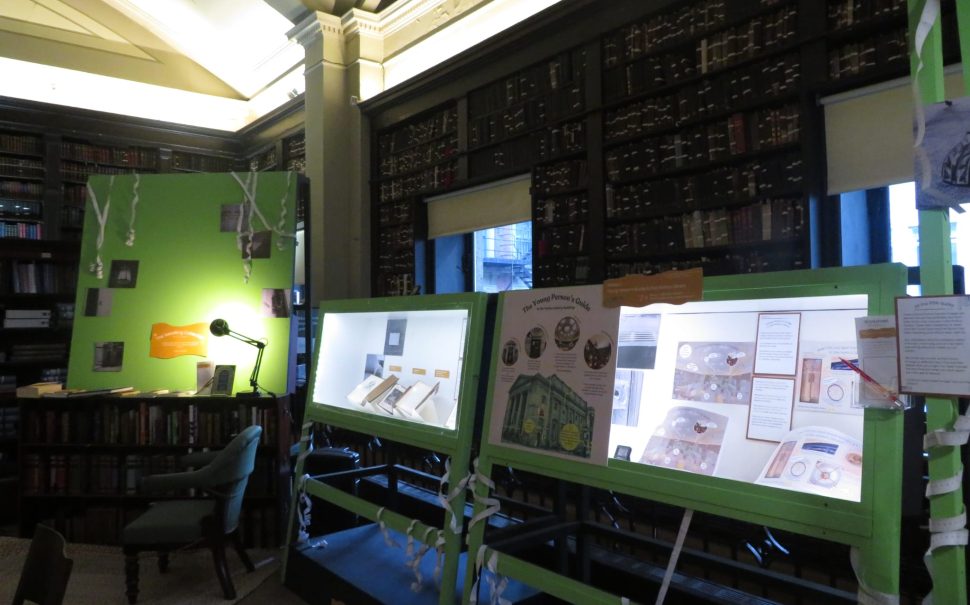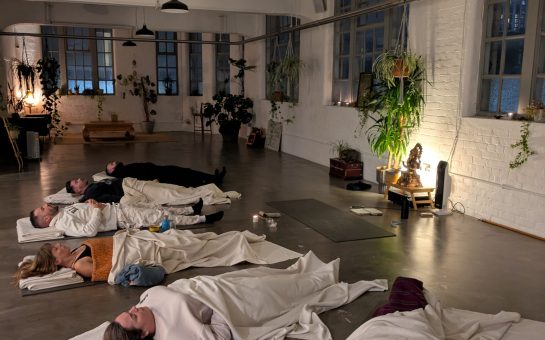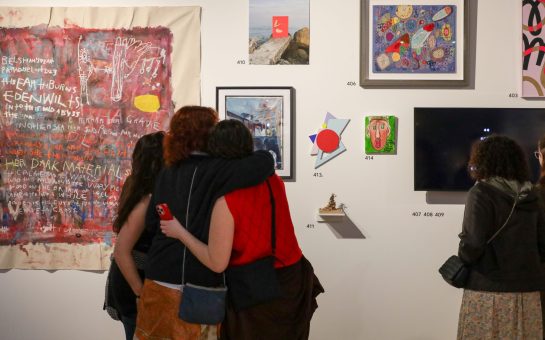One of Manchester’s oldest libraries is calling for Mancunians to help reimagine its space through an interactive exhibition.
‘Under Construction’ is a six-week exhibition at the Portico Library inviting the public to have their say – until December 19.
The Portico is a 218-year-old subscription library and newsroom with a historic collection of over 25,000 books and archives spanning over 450 years.
Built with colonial wealth from the British empire, the Library’s early members – exclusively white men – included word-famous authors, future prime ministers, leading scientists, and educators.
The Portico is now attempting to shape the library into a space which represents and serves the diverse communities of Manchester.
Mancunian Matters spoke to Portico’s exhibition curator and volunteer coordinator Apapat Jai-in Glynn about belonging, her vision for the library, and how the public can get involved in this project.
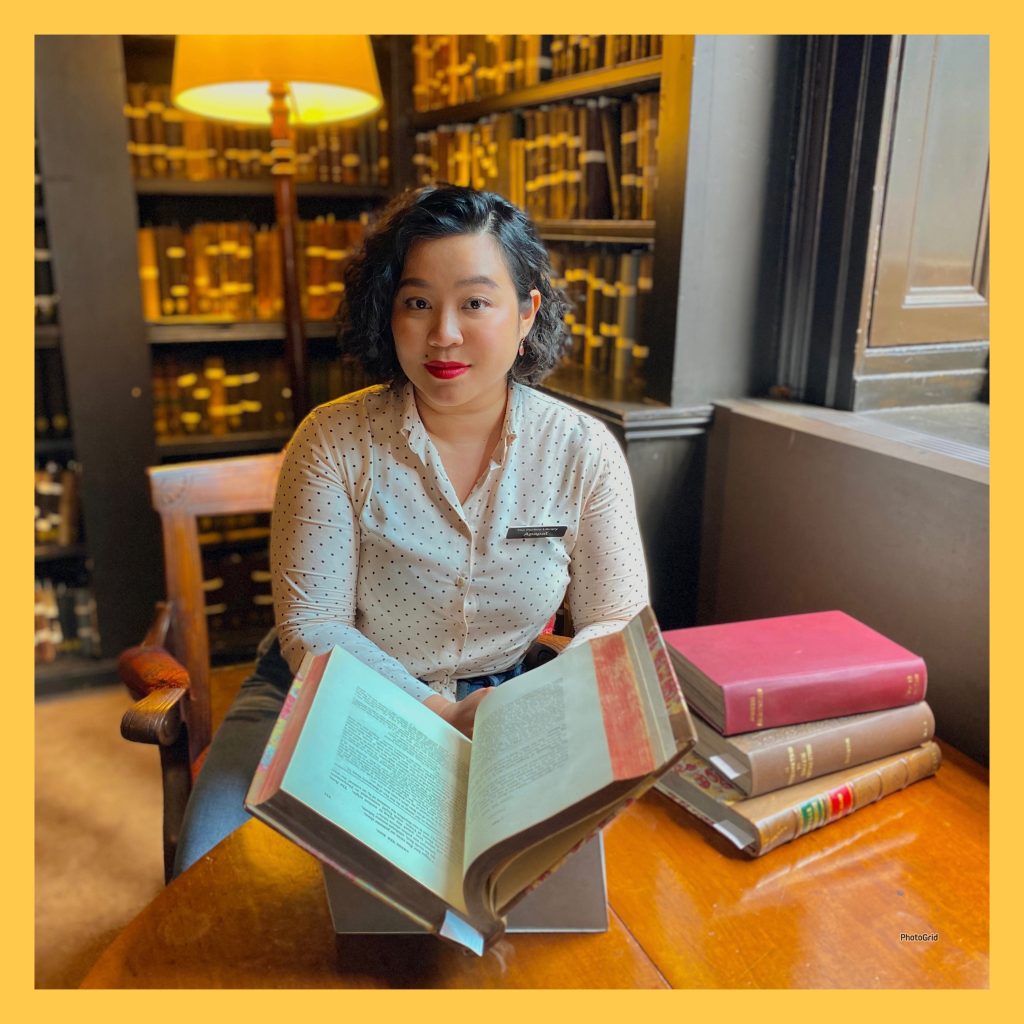
Belonging at the Portico
When Apapat first walked into the Portico Library, she said she did not feel like she belonged there.
The Library, built in 1806, was “very much an exclusive place of its time, where women and people of colour weren’t allowed”, said Apapat.
Apapat, who is a Thai artist and curator, said: “At one point I felt quite powerless working here as a young Asian lady who was regularly challenged by users making me feel as if I don’t belong.
“Therefore, I have been trying to drive change and help people from different backgrounds to feel comfortable here.”
The Library, tucked away on the corner of Chinatown, works with communities, charities, artists and schools to create a more diverse usership.
Lion dancing, for example, was performed in the Portico to celebrate Chinese culture and welcome people from the Chinese community.
However, the library’s exclusive and colonial history results in many books containing Orientalist and imperialist narratives.
Apapat asserts: “It is hard as a person of colour to work alongside books that criticise my culture, language and existence.”
Despite this, she believes books with imperial and offensive content should not be removed from the Portico.
Apapat said: “Racism did happen, and it still happens, and it would be unfair to the people discriminated against to hide that.
“Instead, volunteers flag offensive words so readers can prepare themselves and manage their emotions of rage and anger.
“This context provides users the help and care to research without feeling drained.”
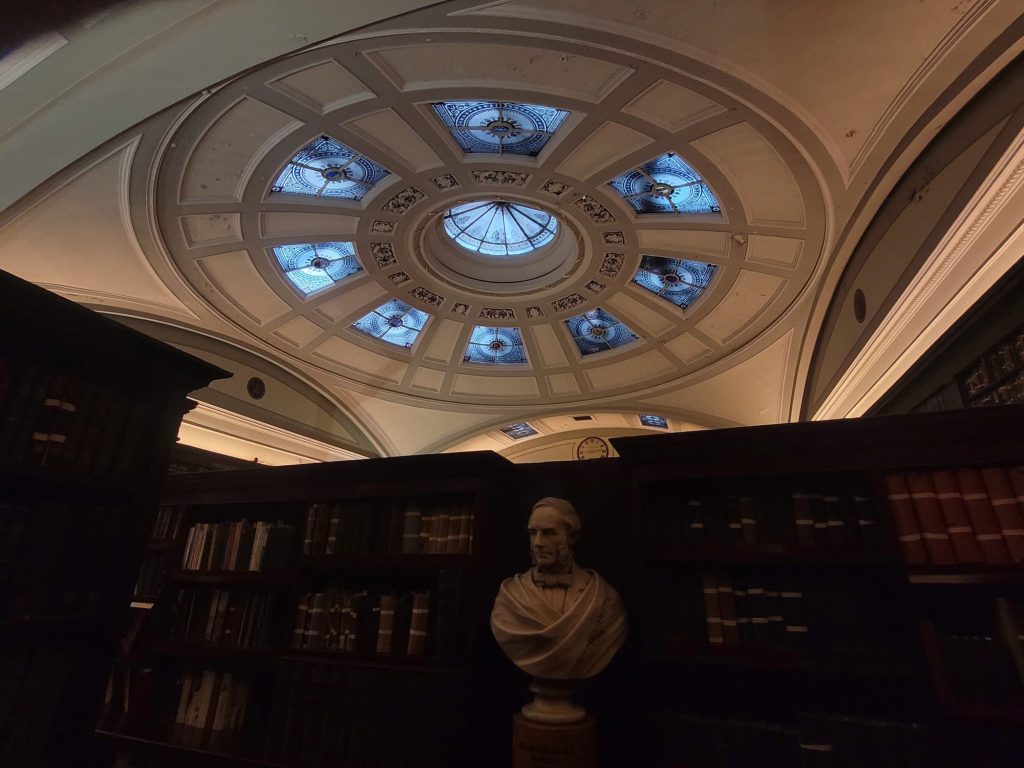
The Portico vision
The Portico Library became a charity in 2017, and was awarded lottery funding in 2023 to develop the building.
The cafe, exhibition space, library, and staff offices are located on one small floor. Therefore, a large part of Apapat’s vision centers around expansion.
Apapat said: “We need a space for people to think, study, research, and be themselves comfortably in Manchester where there are lots of cafes but not enough libraries.
“I would like more creative exhibition space to showcase artists, users and collaborators – not at the edge but actually using the space to the fullest.”
The Portico has hired architects, business planners and activity planners to achieve this.
However, Apapat said as the lottery grant is public money, the public should be included in this process.
Therefore, the current exhibition ‘Under Construction’ asks users what they want to see from the library, what they could improve on, and what would help their visit.
Apapat is asking the public to be “bold”, “harsh” and “direct” in reimagining the Portico through interactive and sensory stations.
Several responses have mentioned increased accessibility features, whilst others would like more Mancunian history showcased, or an open and unrestricted library space with more access to books.
All comments will be transcribed and considered in the process of reimagining the library.

Apapat said: “Come and speak to us, support us by buying lunch here, and gift your family and friends membership cards.
“Just by visiting you are helping the library to do what it’s supposed to do and keeping it free for people to visit.”
Feature image: Sumaiya Motara
